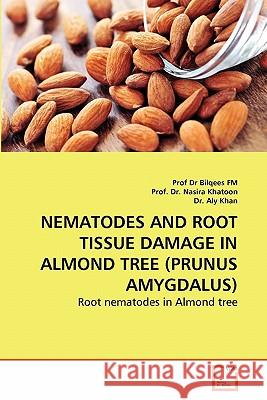Nematodes and Root Tissue Damage in Almond Tree (Prunus Amygdalus) » książka
Nematodes and Root Tissue Damage in Almond Tree (Prunus Amygdalus)
ISBN-13: 9783639284171 / Angielski / Miękka / 2010 / 100 str.
Almond belongs to plant family Rosaceae and sweet almonds have a faint, nutty fragrance and taste, bitter almonds taste bitter and develop an intensive characteristic aroma with moisture. Almond contains about 50% of a fatty oil. It is made up of glyceroids, oleic acid, linoleic acid, palmitic acid. It contains water, calories, proteins, fat, carbohydrate, crude fiber, thiamin, riboflavin, niacin, calcium, phosphorus, iron, potassium and vitamins. Almonds are used in candies, baked products and confectioneries and oil obtained from kernels. Leaves are used in the treatment of diabetes. The seeds or its oil are used in folk remedies for cancer. Roots of almond may be damaged by nematode parasites and affect the whole tree. Root surface is eroded, severe damage to root vascular tissue occurs, giant cells are formed and most of the cells are occupied by egg masses of nematodes. Clumping of root cells occur. Due to vascular tissue damage leaves are also affected and yield is reduced. This information is useful for parasitologists, plant pathologists, researchers in this field and fruit growers.











